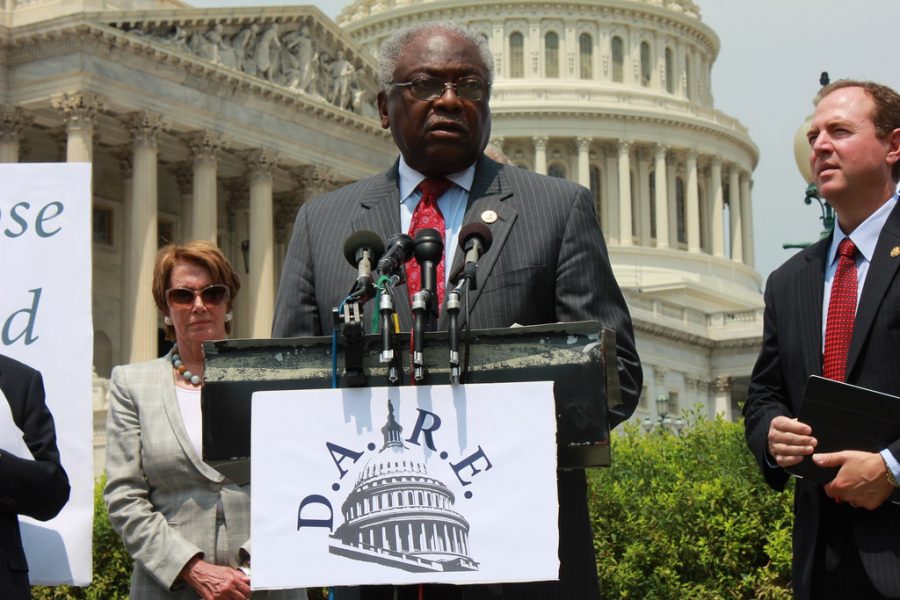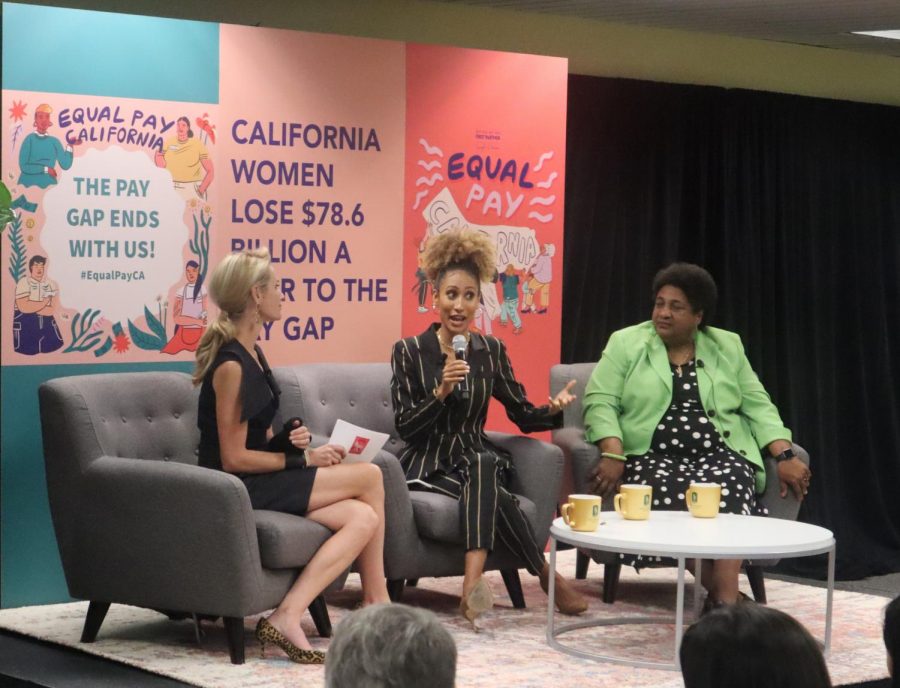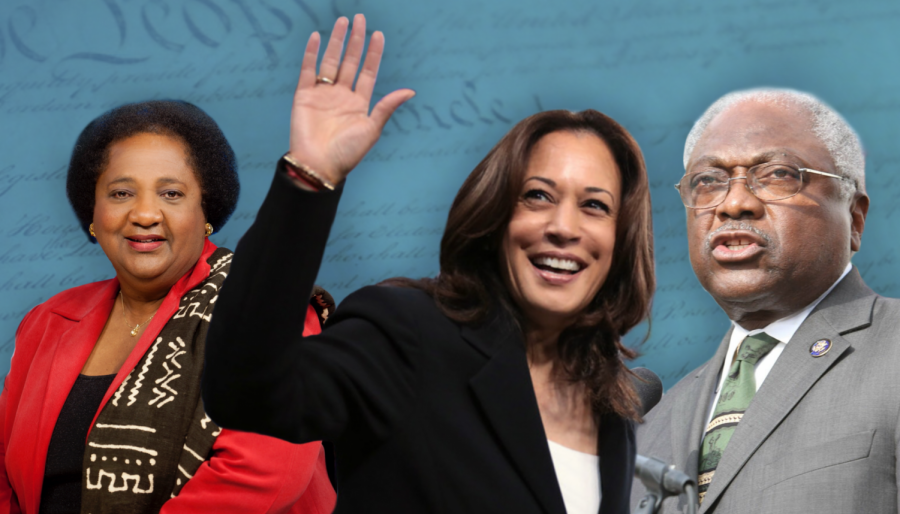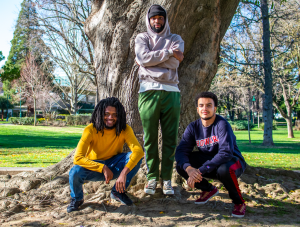Sac State Black community reflects on Black leadership’s impact in politics
From left to right, California Secretary of State Shirley Weber, Vice President Kamala Harris and Rep. James Clyburn of South Carolina are Black politicians that have risen in prominence in local and U.S. politics. “Rep. James Clyburn” by SEIU International is licensed under CC BY-NC-SA 2.0. “Kamala Harris” by Gage Skidmore is licensed under CC BY-SA 2.0. Photo of Carroll Fife courtesy of City of Oakland’s website. Graphic made in Procreate.
February 19, 2021
With the rise of Black leaders like Vice President Kamala Harris and California Secretary of State Shirley Weber to positions of power in government, members of the Black community at Sacramento State shared their opinions with The State Hornet on the impact the increasing Black representation will have in U.S. politics.
In 2021, Kamala Harris was the first Black American woman to hold the second-highest office in the U.S. and Shirley Weber was sworn in as the first Black American secretary of state in California.
Black leadership in offices never occupied by Black Americans before 2021 has served as a source of optimism for Black Sacramento State students like kinesiology major Lucas Bonaparte.
Bonaparte, a member of the Sac State College Democrats, said this trend helps to break down negativity about politics in the Black community.
“I think it’s going to tear down barriers…when it comes to barriers in life, Black people internalize it, they allow themselves to live with it and don’t speak out about it,” Bonaparte said.
Bonaparte said that the rise of Black leadership in politics is a sign of the times in other ways that go beyond the political sphere.
“I can go out and get that dream job of mine,” Bonaparte said. “I can go out and be a senator, I can go out and be on an executive board, and it doesn’t matter what my skin color is.”
Four-in-ten Black adults said that working to get more Black people elected to office would be a very effective tactic for groups striving to help Black Americans achieve equality according to a Pew Research Center survey conducted in June 2020 amid the Black Lives Matter protests.
Robert Oden, a political science professor on campus and a founding member of the Center of Race, Immigration and Social Justice at Sac State, lists political figureheads such as Congressman James Clyburn and Oakland City Councilmember Carroll Fife as prime examples of the kind of leadership he believes is needed in politics.
“If you’re doing things that are going to perpetuate the status quo, you’re not engaging in progressive politics,” Oden said. “We’re not here to help those who are doing well, who have privilege.”
Oden said he has also worked to encourage his students to involve themselves in local government.
“I have asked students to be able to volunteer in city government here in Sacramento as interns,” Oden said.
The students have been able to work with city staff and officials on community issues and gain expertise in city government according to Oden.
Story continues below the image.

While some students say the rise of Black political leaders demonstrates the openness of the political system, some students are disappointed with the leadership provided by these political figures to their communities.
Khalil Ferguson, alumnus and founder of the campus’ Black Student Union, believes in the importance of Black political leadership but believes that the performance of some of those leaders has been disappointing.
Ferguson said he is concerned that seeking personal gain and reelection can often obstruct all politicians from pursuing what is best for the communities they are meant to be serving, regardless of their race.
“You become caught up in the cycle of being reelected,” Ferguson said. “To serve your people in the capacity that you want to, you have to be re-electable, which means you can’t be as radical, you can’t be as firm.”
Ferguson said he identifies his politics as leftist and engages in progressive activism regularly. He said that many of the issues he cares about often go ignored by the politicians who hold office, and he said that does not exclude Black politicians.
“Skin color doesn’t always equate to progress when it comes to the ascendency of African Americans or people of color in the political realm,” Ferguson said.
One politician that Ferguson has rallied behind is California’s Secretary of State, Shirley Weber. In 2019, Weber’s Assembly Bill-392 inspired Ferguson and others to stage a student walkout at Sac State to voice their support.
Story continues below the image.

AB-392, approved by Gov. Gavin Newsom Aug. 19, 2019, aimed to redefine the circumstances under which a homicide by a peace officer is deemed justifiable according to the bill.
“Her background has been with regards and in support of Black people, [it] has not been to the detriment of Black people,” Ferguson said. “She was a former ethnic studies professor at San Diego State, and she understands the material analysis, or the analysis of Black people in the United States.”
Jessica Bogans, a junior theatre major and member of the Sac State College Republicans, also said she has been disappointed with the performance of many contemporary Black politicians.
Bogans, who is Black, said being open in your community, volunteering, giving out food to the homeless and being involved in non-profit organizations is important.
“I think people are, especially in the Black community, are tired and frustrated and just want to see change and to start making things happen,” Bogans said.








































































































































